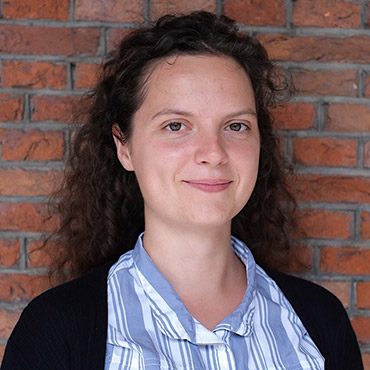|
21/02/2022
The Transformation of the Imamate in Yemen, 1200-1800: Beyond the Failed State Paradigm
 |
| Dr. Ekaterina Pukhovaia |
The MBI Al Jaber Foundation co-hosted its first online lecture of 2022 with the International Association for the Study of Arabia (IASA) and the British-Yemeni Society (B-YS). The lecture, The Transformation of the Imamate in Yemen, 1200-1800, was presented by Dr. Ekaterina Pukhovaia, a graduate in Oriental Studies from Moscow State University, who is currently a post-doctoral Fellow at the Polonsky Academy of the Van Leer Institute in Jerusalem. It was introduced by Dr. Noel Brehony, Chair of IASA.
Dr Pukhovaia is preparing a book entitled ‘Between Sultans and Imams: State and Elite Transformation in Zaydi Yemen, 1200-1800’ and drew on this for details of the transformation of the state in Yemen over the six-century period. She presented the audience with an excellent summary of this complex history, using maps, sayyid genealogies and Arabic documents, focussing on the Zaydi imamate in the region. The Zaydis were a Shia sect that first arrived in the northern highlands of Yemen at the turn of the 10th century.
Kate first talked about the key features of the Zaydi imamate during the period under discussion before dividing this long history into three main periods: c. 1200-1500 – the development of the ‘classical’ Zaydi imamate, 1538-1635 – the first Ottoman occupation and 1600-1872 – the rise and consolidation of the Qasimid imamate.
During the first main period, there was a huge increase in manuscript production, including political histories and biographies of the imams which helped to underpin their power and prestige. There was also the emergence of sayyid dynasties which established alliances with the tribes and competed for the imamate. The most successful of these, the Bayt Sharaf al-Din dynasty, rose to prominence when Imam Al-Mutahhar Sharaf al-Din took Sana’a and Sa’dah. During his rule, the Zaydi state extended from Najran to Zabid, but was later weakened by the problems of governing such a vast territory, as well as competition for the succession.
The second main period under discussion was 1538 – 1635 - the first Ottoman occupation; this was described as the ‘golden age’ of Ottoman-Zaydi cooperation in Yemen when the Ottomans incorporated elite sayyid families and tribal leaders into state governance. The collaboration between the Al Shams al-Din of Kawkaban and an Ottoman governor, highlighted by Dr. Pukhovaia as a striking example of Zaydi-Ottoman ‘symbiosis,’ is documented in a biographical manuscript located in Leiden.
When discussing the third main period, Kate explained how the Ottomans aided the Qasimid dynasty’s rise to power by educating and employing sayyid and tribal elites, bequeathing to them the means to rule their state after they left in 1638. There was fierce competition for the succession during the rule of imam Al-Masure al-Qasim, and the new imam, Al-Mu’ayyad Muhammad b. al-Qasim, one of his sons, was elected. He divided the northern part of his domain into ‘dominions’. The next imam, Al-Mutawakkil Isma’il b. al-Qasim, was able to gain power and maintain his hold on it. He expanded the Zaydi state, in part because he had no brothers competing with him for succession. The huge increase in revenues from the growth of the international coffee trade is highly significant for understanding the success of the Qasimi rule.
Dr. Pukhovaia gave a fascinating presentation covering the evolution of the Zaydi imamate over approximately 600 years, and members of the audience asked some equally interesting questions. In response to these questions, she demonstrated her impressive knowledge of the topic under discussion.
The MBI Al Jaber Foundation wishes to thank Dr. Pukhovaia, as well as the IASA and B-YS for making this presentation possible. We very much look forward to seeing you at Matthew Teller’s talk on 10th March.
For further information, please contact:
Director of Public Relations
[email protected] |



